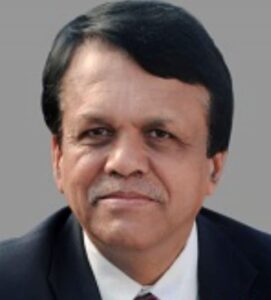
 By Prof. Dr. P. Satishchandra & Dr. Dr Santosh Kumar Dash
By Prof. Dr. P. Satishchandra & Dr. Dr Santosh Kumar Dash
Epilepsy is a neurological disorder characterized by recurrent seizures caused by abnormal brain activity. It affects over 50 million people worldwide, with nearly 10 million cases in India. International Epilepsy Day, observed annually on the second Monday of February, is dedicated to raising awareness, promoting understanding, and combating the stigma associated with this condition.
Understanding Epilepsy:
The causes of epilepsy are diverse, ranging from brain injuries, infections, strokes, and tumours to developmental disorders and genetic factors. Some cases are idiopathic, meaning the exact cause is unknown. Although epilepsy can affect individuals of all ages, it is most commonly seen in children and the elderly.
Seizures can manifest in various ways, including sudden confusion, staring spells, jerking movements, loss of consciousness, and unusual emotions or behaviours. Diagnosis typically involves a comprehensive medical history, eyewitness accounts of seizure episodes, and diagnostic tests such as electroencephalograms (EEGs), magnetic resonance imaging (MRI), or computed tomography (CT) scans.
Effective Management and Treatment:
Approximately 70% of epilepsy cases can be effectively managed with anti-epileptic drugs (AEDs). For drug-resistant cases, alternative treatments include epilepsy surgery, vagus nerve stimulation, and ketogenic diets. Management of epilepsy requires specialized care, often provided through dedicated epilepsy clinics.
At KIMS Hospital, our specialized Epilepsy Clinic offers comprehensive, multidisciplinary care. This includes advanced diagnostic services, neuroimaging, long-term video-EEG monitoring, and surgical interventions. Our team comprises neurologists, neurosurgeons, psychologists, and rehabilitation specialists, working together to provide holistic care tailored to each patient’s needs.
In addition to medical treatments, lifestyle modifications play a crucial role in seizure control. Key recommendations include maintaining regular sleep patterns, managing stress, avoiding known triggers, adhering to prescribed medications, following a healthy diet, and engaging in regular physical activity.
Dispelling Myths and Combating Stigma:
Despite being a well-understood medical condition, epilepsy remains shrouded in myths and misconceptions. False beliefs, such as epilepsy being a mental illness or caused by supernatural forces, contribute to stigma and discrimination. This can negatively impact the education, employment opportunities, and social lives of individuals living with epilepsy.
Raising awareness and promoting accurate information are essential in challenging these myths. It’s important to highlight that girls and women with epilepsy can marry, have healthy pregnancies, and experience normal childbirth with appropriate medical care and guidance.
A Message of Hope:
Epilepsy is a manageable condition, much like hypertension or diabetes. With proper treatment, support, and lifestyle adjustments, people with epilepsy can lead fulfilling, productive lives.
This International Epilepsy Day 2025, the theme “My Epilepsy Journey” invites individuals to share their stories, fostering a sense of community, support, and inclusion. Together, through awareness and understanding, we can break the myths surrounding epilepsy and build a future filled with hope for all those affected by this condition.
(Dr. Satishchandra is Emeritus Professor, KIIT University & KIMS Hospital; In-Charge, Epilepsy Clinic, KIMS, Bhubaneswar.
Dr. Santosh Ku Dash is the Asso Professor and HoD, Neurology, KIMS, Bhubaneswar)
 The Business Bytes
The Business Bytes